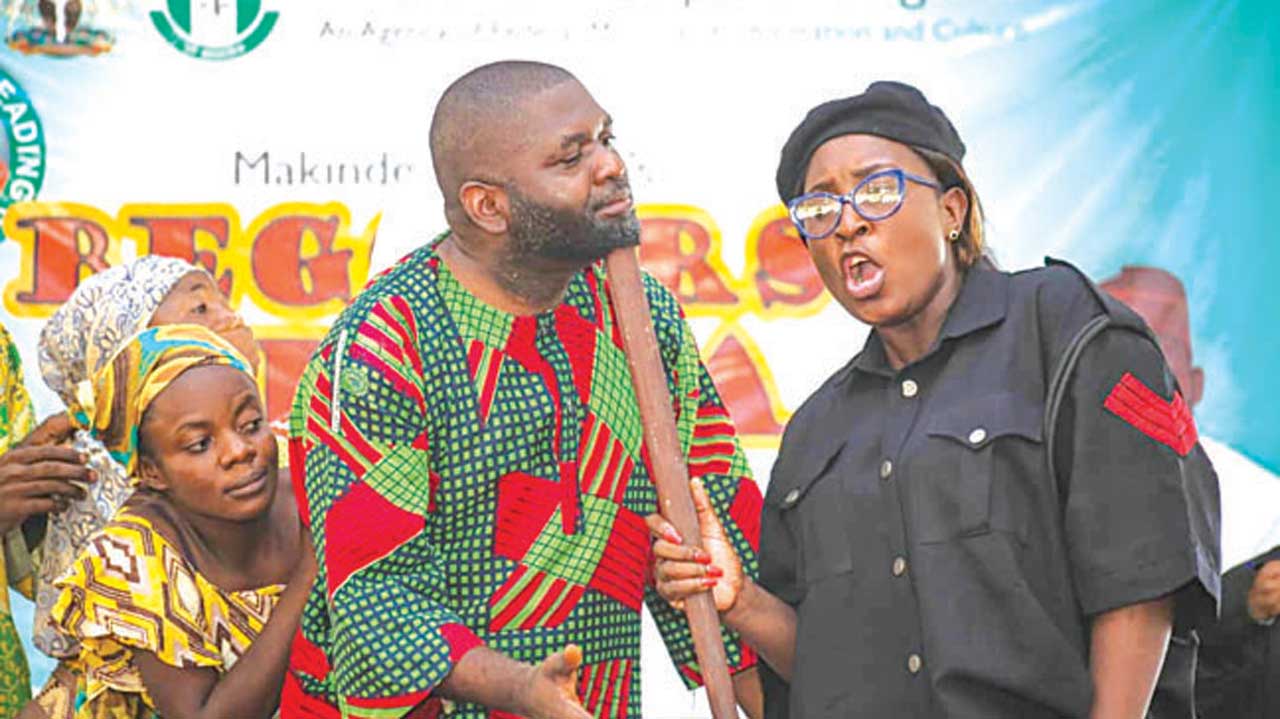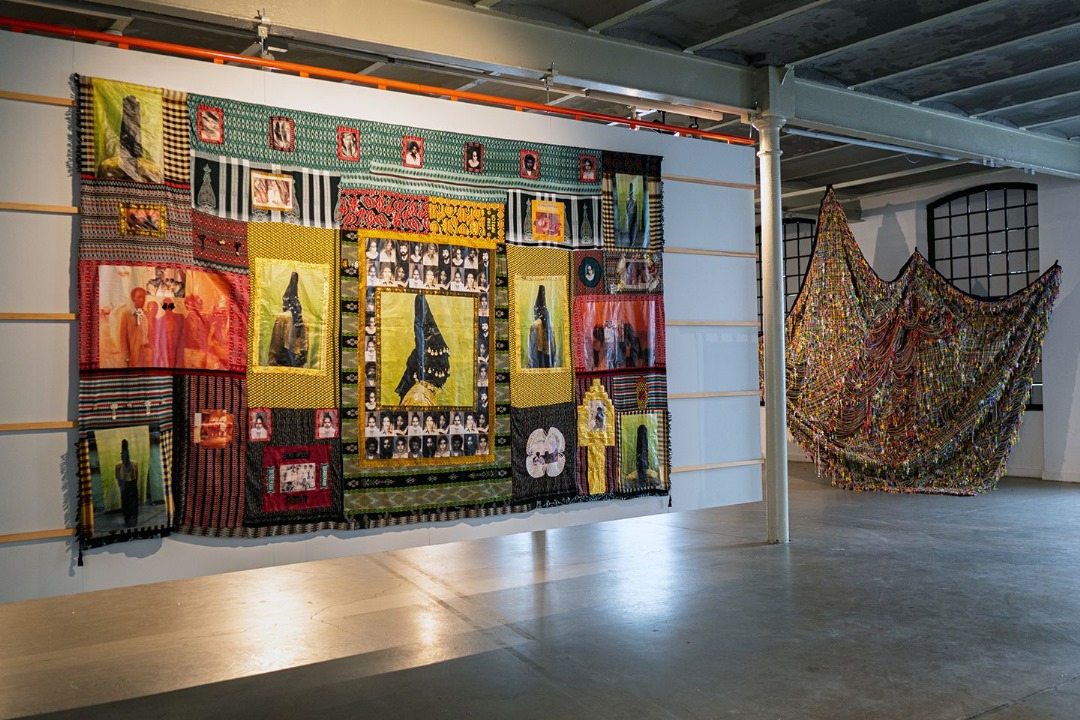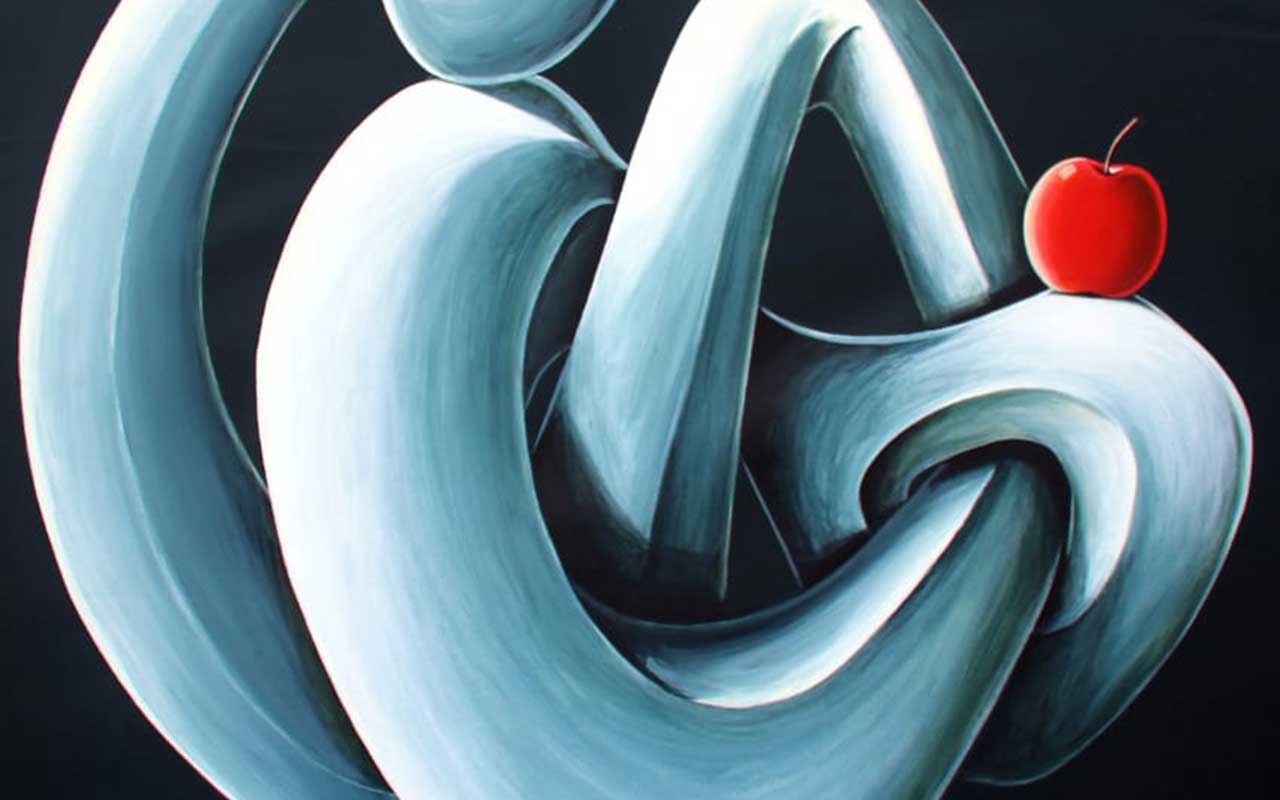
Makinde Aderniran’s Beggars Opera reopened the session, which coincidentally, was its 32nd edition.
Held at the National Theatre Marquee, Iganmu, Lagos, the session attracted theatregoers and arts critics from all walks of life.
Excerpts from the book were dramatised by staff of the Troupe.
On what led to the 77-page story, Adeniran said his experience with Prof. Wole Soyinka during his days in political exile as a result of the late Head of State, Gen. Sani Abacha’s crackdown on June 12, 1993 supporters, led to the play.
Being the youngest of the lot in that team, he captured his experience of that period.
The play interrogated how they were running all over the place thinking they were fighting, but in the young Makinde’s eyes, they were just beggars.
In that confusion, the writer was not sure they would get out of it, so, the pain he saw was basically what he shared in the play.
Defending his dramaturgy, Makinde said the long dialogue came as a result of his attempt to decongest his mind of the so many things and the burden that he carries.
While many commended his deployment of characters, arguing that it was an actor’s play, others see it as directors play.
They said the play was one actors must understand their roles and functions, especially as they relate to the iconic characters that fought for June 12: That whoever is handling the play must have a good grasp of the Nigerian situation and the challenges facing the country, because they are hidden in the lines and if not properly handled, the audience will lose the message, as everything is symbolic.
For instance, the flowing river in one of the scenes must be known where it is headed, which is a situation Nigeria finds.
“All of the issues it has been addressing, like power from many years back are still there. The late Fela Anikulapo Kuti sang about it, and still, nothing has changed and there is no hope as the country may still be talking about it in many years to come,” a guest said.
Another observer felt he would feel more comfortable if there is a little translation of the Yoruba parts on the side so that the director can have a better understanding.
Another felt the writer should have simply told his story and allow the designer to situate it.
The comic part of it really got the audience laughing and another observer said the writer who is always looking for what will resonate with the audience did that in the play.
In all of the arguments, Makinde said, “I write most of my plays as an intervention. The dialogue is also my attempt to speak to the Yoruba audience, globally.”
He added, “all the curses rained on oppressors, to me, are the unrivaled hope of the masses. If you can kill all of us, you cannot kill the curses that we issue into the air when the effigy is still alive, to me that is the way it seemed, it is my own way of capturing history.”
The Artistic Director/CEO of the National Troupe, Ahmed Mohammed Ahmed, said PRS has been revived to highlight the need to use the session to promote good literary works of Nigeria and beyond.
According to him, “PRS gives a good contextual feeling of the works of the playwrights.
“PRS are as important as acting because it reveals the real mind of the writers.
“the exercise also provides an expository text in works of playwright for theatre critics and experts to suggest how the play could be improved upon,” he said.
Ahmed also noted that bringing back play reading was part of the mandate of the troupe.
“What we do is to make the writers understand the techniques of writing plays from the perspective of bringing academics to analyse and make informed comments.”






